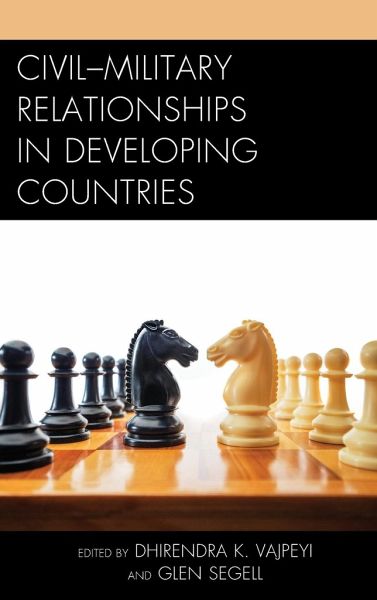
Civil-Military Relationships in Developing Countries

PAYBACK Punkte
62 °P sammeln!
Civil–Military Relationships in Developing Countries analyzes the crucial links between security, democratization, economic development, and state building institutions. With studies of fourteen countries in Asia, the Middle East, and Africa, this book provides a comprehensive analysis that offers a new understanding of civil–military relations.














